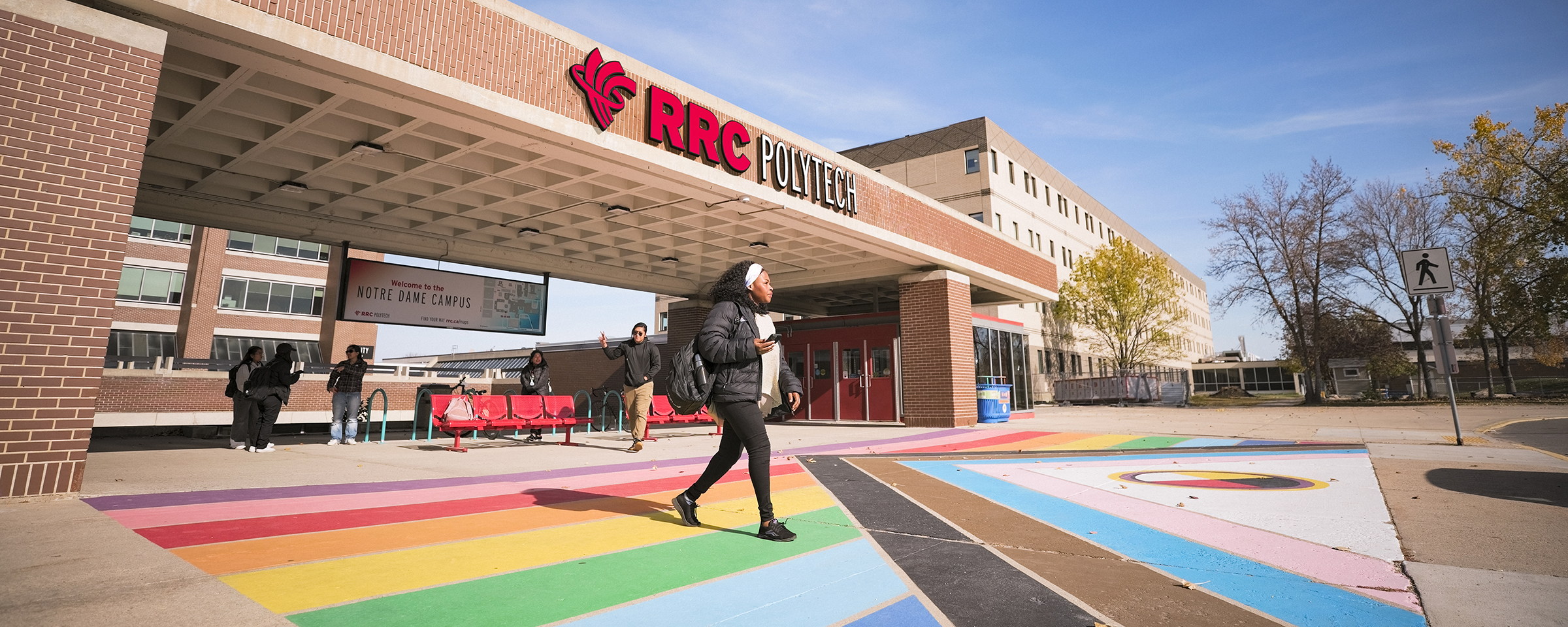Winkler Campus Instructor Advocates for Increased Cultural Awareness
 As an instructor at Red River College’s Winkler Campus, she advocates for balanced health in heart, spirit, mind and body.
As an instructor at Red River College’s Winkler Campus, she advocates for balanced health in heart, spirit, mind and body.
And as a counselor in the community of Roseau River First Nation, Violet Caibaiosai prescribes an increased awareness of culture and history as the treatment for deficiencies in both mental and physical health.
“One of the most important things would be recognizing what our history is, and then taking an honest look at that history,” says Caibaiosai, who’s taught Applied Counselling courses at Winkler Campus since 2009.
“It’s not always a pretty one, but it’s a difficult one, and it’s important that it be looked at. There’s always an understanding that comes from knowledge and that’s what my goal is, whether it’s in larger society or our own communities. Because people have become so fearful — not only of society, but of themselves.”
A former Ontario native who grew up on the north shore of Lake Huron, Caibaiosai was raised by her parents and grandparents — the latter having imparted the importance of spiritual strength by teaching her about the holistic, healing qualities of traditional medicine.
She incorporates a similar respect for tradition among her students at RRC, noting many who go on to be counsellors may need to draw on that cultural knowledge while working with — and alongside — First Nation residents throughout Manitoba and Canada.
“It’s important for others to understand that history that we have together as a nation,” says Caibaiosai. “There’s a bridge that has to be built, and part of what I do in the classroom is to build those bridges of understanding.”
As a counsellor at Roseau’s Ginew Wellness Centre, Caibaiosai works with some 130 community members, many of whom she helps achieve new levels of understanding by getting past the negative connotations they continue to associate with their own culture.
“Our people have a long history of oppression, and one of the things I like to do is make sure they understand what that’s all about, and how it impacts their lives,” says Caibaiosai, herself a survivor of Canada’s residential school system. “That’s a big job in itself, because part of the work we’re expected to do is to help them develop stronger life skills, while introducing them to the spiritual part of our worldview as Anishinabe.”
One of the biggest obstacles to Caibaiosai’s bridge-building ideal is the systematic oppression she feels is still ingrained in society at large.
“There’s a difficulty accepting that we have a worldview that is separate from, or different from,” she says. “We see the world in a broader sense, I would say. We’re more accepting of and understanding of the spiritual element of the universe, and that’s a challenge in a society where what scientists believe is the most important thing.”
That said, she’s also encouraged by steps taken within the health-care industry to address cultural variances by heightening awareness.
“We had a gathering here in our wellness centre, and we had two presenters come and speak to a group on exactly what we’ve been talking about: cultural awareness,” she says. “That makes for a lot of understanding of what our people are experiencing, certainly in terms of health determinants.”
Click here for more information on Winkler Campus’ Applied Counselling program.
